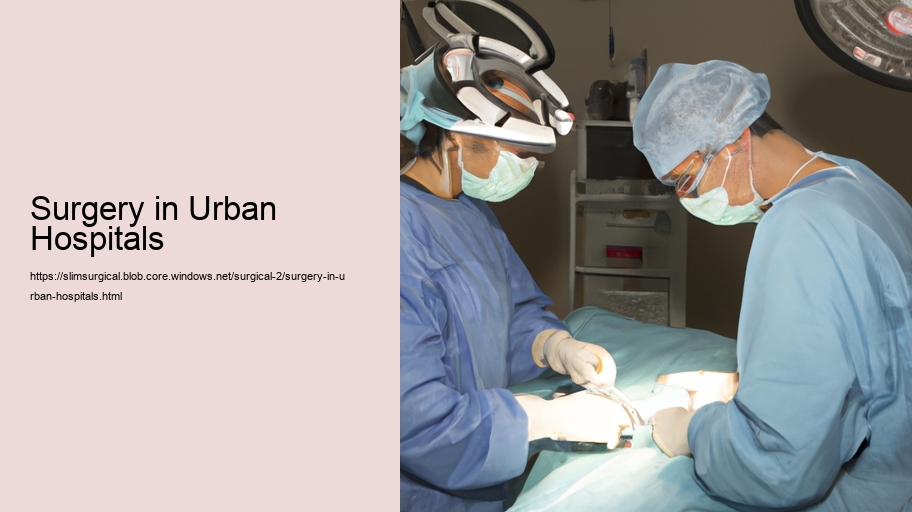Surgery in Urban Hospitals: Navigating Complexity in Modern Healthcare
Surgery has always been a critical component of healthcare, providing life-saving and life-enhancing treatments to countless individuals. In urban hospitals, the landscape of surgical care is complex, sophisticated, and ever-evolving, reflecting the dynamic nature of cities themselves. These hospitals stand as beacons of advanced medical care, often housing the latest technologies and the most skilled professionals.
Urban hospitals face unique challenges and opportunities when it comes to surgical services. The high density of the population in cities leads to a greater diversity of cases, including both routine procedures and highly specialized surgeries. This diverse caseload requires urban hospitals to maintain a broad spectrum of surgical specialties, from cardiology and neurosurgery to orthopedics and plastic surgery. The confluence of different cultures also means that urban hospitals must provide care that is sensitive to a variety of health beliefs and practices.
The pace of innovation in urban hospitals is remarkable. Surgeons in these settings are frequently at the forefront of adopting new techniques and technologies, such as minimally invasive surgeries, robotic-assisted procedures, and advanced imaging techniques. These advancements not only improve outcomes but also reduce recovery times, allowing patients to return to their daily lives more quickly.
However, the high-intensity environment of urban hospitals is not without its challenges. The sheer volume of patients can strain resources, leading to longer wait times for elective surgeries and the need for triage systems to prioritize urgent cases. Moreover, the high costs associated with maintaining state-of-the-art facilities and equipment can translate to financial pressures for both the hospitals and their patients.
The workforce in urban hospitals is a critical factor in the delivery of surgical care. Surgeons, nurses, anesthesiologists, and other healthcare professionals must work in a highly coordinated manner to ensure patient safety and positive outcomes. This collaboration is especially important in emergencies, where time is of the essence and teamwork can mean the difference between life and death.
Urban hospitals also serve as educational hubs, training the next generation of surgeons. Residents and fellows learn their craft under the guidance of experienced mentors, honing their skills in a fast-paced and diverse environment. The research conducted in these institutions often drives the development of new surgical techniques and treatments, further contributing to the field of medicine.
Unfortunately, disparities in access to care remain an issue in urban settings. Socioeconomic factors can significantly impact a patient's ability to receive timely and high-quality surgical care. Urban hospitals must navigate these complexities by working with community partners and policymakers to improve access and address the social determinants of health that influence surgical outcomes.
In conclusion, surgery in urban hospitals is a microcosm of the broader healthcare system, reflecting both its triumphs and challenges. The provision of surgical care in these settings requires not only medical expertise but also a deep understanding of the social fabric of the communities they serve. As urban hospitals continue to advance technologically, it is imperative that they also strive to be inclusive and equitable in their care delivery, ensuring that all patients receive the best possible surgical outcomes.
